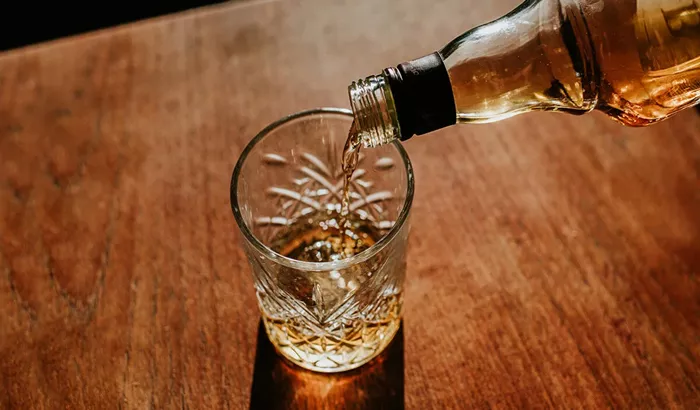Bipolar disorder is a mental health condition that causes extreme mood swings, including manic and depressive episodes. For individuals with bipolar disorder, drinking alcohol can have serious consequences. Alcohol may interfere with medication, worsen mood swings, and lead to risky behaviors. Understanding how alcohol affects bipolar disorder can help individuals make informed choices about their health. This article explores the effects of alcohol on bipolar disorder and offers practical advice.
The Impact of Alcohol on Bipolar Disorder
Alcohol is a depressant that affects the central nervous system. When consumed, it can initially make someone feel relaxed or euphoric, but its effects are often short-lived. For people with bipolar disorder, alcohol can be particularly harmful.
Disruption of Mood Regulation
Bipolar disorder involves the brain’s difficulty in regulating mood. When a person with bipolar disorder drinks alcohol, it can interfere with their mood stabilization. During manic episodes, alcohol can increase impulsivity, aggression, and risky behaviors. In contrast, alcohol can worsen depressive symptoms, making a person feel more hopeless or lethargic.
Interference with Medication
People with bipolar disorder typically take medications to manage their symptoms, such as mood stabilizers or antipsychotic drugs. Alcohol can interfere with the effectiveness of these medications. For example, alcohol can amplify side effects, like drowsiness or dizziness, or reduce the medication’s ability to prevent mood swings.
Increased Risk of Substance Abuse
Individuals with bipolar disorder are more prone to substance abuse, including alcohol. The self-medicating behavior of turning to alcohol to cope with mood swings can lead to dependence or addiction. This only complicates the management of bipolar disorder, making treatment less effective and increasing the likelihood of mental health crises.
How Alcohol Affects the Brain and Behavior in Bipolar Disorder
Alcohol has a direct effect on the brain, and its interaction with bipolar disorder can be more intense than for someone without the condition.
Altered Brain Chemistry
Bipolar disorder is associated with an imbalance of neurotransmitters like serotonin, dopamine, and norepinephrine. Alcohol can exacerbate these imbalances, leading to more severe mood swings. It may increase the likelihood of both manic episodes and deep depressions.
Increased Impulsivity
During a manic episode, the brain’s judgment center is less active, which is why people with bipolar disorder may make impulsive decisions. When alcohol is consumed, this lack of impulse control becomes even more pronounced. Drinking alcohol can lead to reckless actions, including risky sexual behaviors, poor decision-making, or even dangerous physical activities.
Depressive Effects
On the flip side, alcohol has a sedative effect, which can contribute to depression. Alcohol’s depressive effects can amplify the emotional lows associated with bipolar disorder. A person might feel down, anxious, or even suicidal after drinking, which can extend or worsen a depressive episode.
How to Manage Bipolar Disorder and Alcohol Use
If you or someone you know has bipolar disorder, understanding how alcohol impacts the condition is essential for better management of mental health.
Consult a Mental Health Professional
Before making any decisions about alcohol use, it’s important to consult with a mental health professional. A psychiatrist or therapist can guide individuals on the potential risks and provide resources for alcohol-related issues.
Practice Moderation or Abstinence
For some people with bipolar disorder, avoiding alcohol entirely is the safest option. However, for those who can consume alcohol in moderation, it’s essential to do so with caution. Limiting the quantity and frequency of alcohol consumption can help prevent alcohol from interfering with treatment and mood stability.
Engage in Healthy Coping Strategies
Instead of turning to alcohol to cope with emotional distress, people with bipolar disorder should explore healthier alternatives. Regular physical exercise, mindfulness practices like meditation, or therapy sessions can be effective ways to manage stress, anxiety, or mood swings.
Can Alcohol Be Part of Life with Bipolar Disorder?
The question of whether alcohol can be part of life with bipolar disorder depends on the individual. While some may be able to control their alcohol intake, others may struggle with addiction or dependency, making alcohol use unsafe. Each person’s situation is unique, so personalized advice from a doctor is essential.
FAQs About Alcohol and Bipolar Disorder
1. Does alcohol make bipolar disorder worse?
Yes, alcohol can exacerbate symptoms of bipolar disorder by disrupting mood regulation, interfering with medication, and increasing impulsivity. Alcohol often worsens both manic and depressive episodes, making it harder to manage the condition.
2. Can someone with bipolar disorder drink alcohol in moderation?
Some individuals with bipolar disorder may be able to drink alcohol in moderation, but it depends on the person and their specific treatment plan. It’s crucial to consult with a healthcare provider to assess the risks and make informed choices.
3. What should I do if I have bipolar disorder and drink alcohol?
If you have bipolar disorder and drink alcohol, it’s important to seek professional advice. Your doctor or mental health professional can help you manage both your condition and alcohol use. They may suggest therapy, medication adjustments, or alcohol treatment programs if necessary.
In conclusion,Alcohol can have serious consequences for people with bipolar disorder. It can worsen mood swings, interfere with medications, and increase the risk of addiction. The safest course is to avoid alcohol or drink in moderation, with guidance from a healthcare professional. If you or a loved one is struggling with alcohol and bipolar disorder, seeking professional help is essential for effective treatment and better mental health management.
Related articles:
- 6 Signs You Might Have Bipolar Disorder
- Bipolar Disorder VS Schizophrenia: How To Distinguish
- 20 Surprising Physical Symptoms Of Bipolar Disorder


